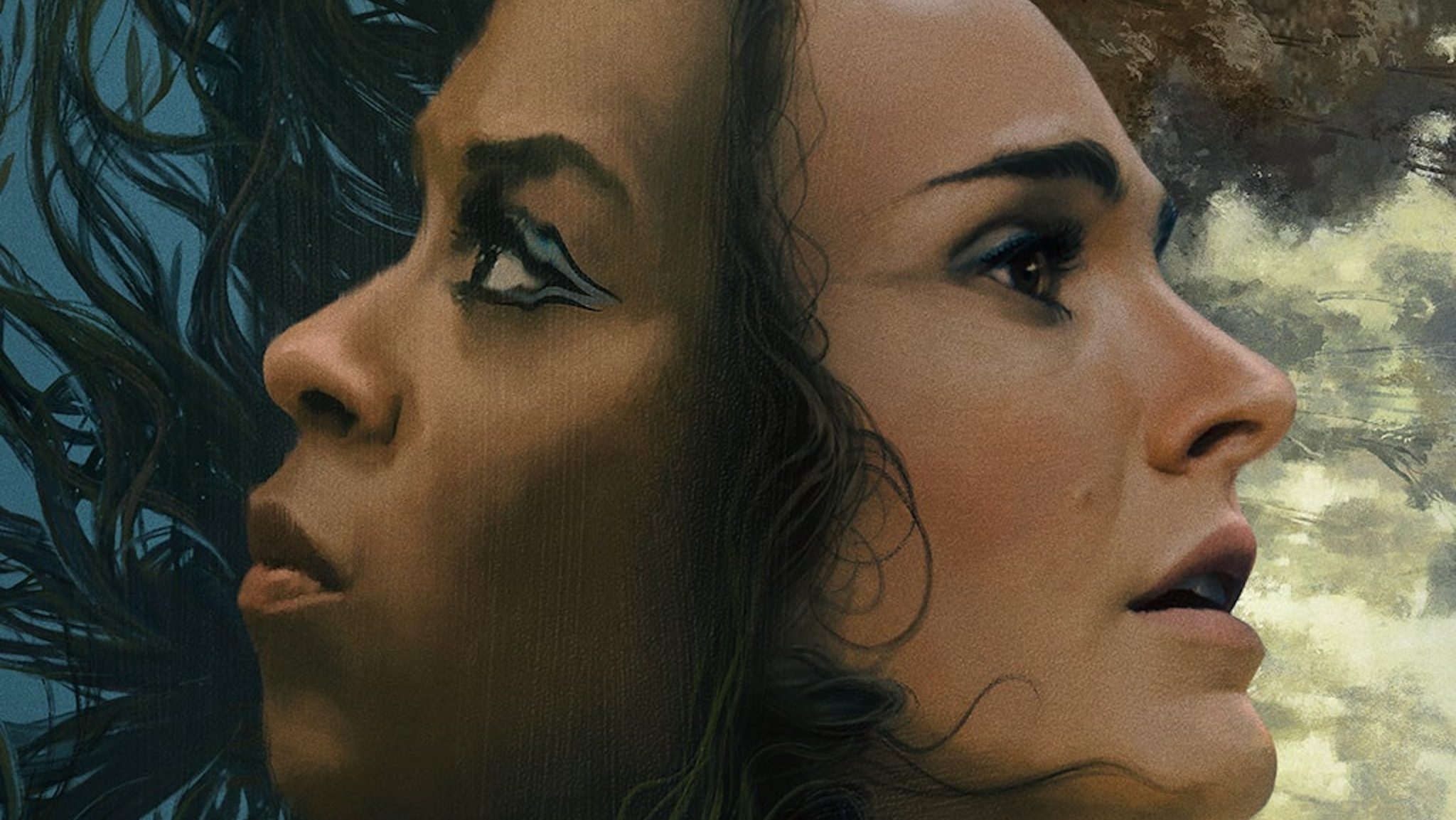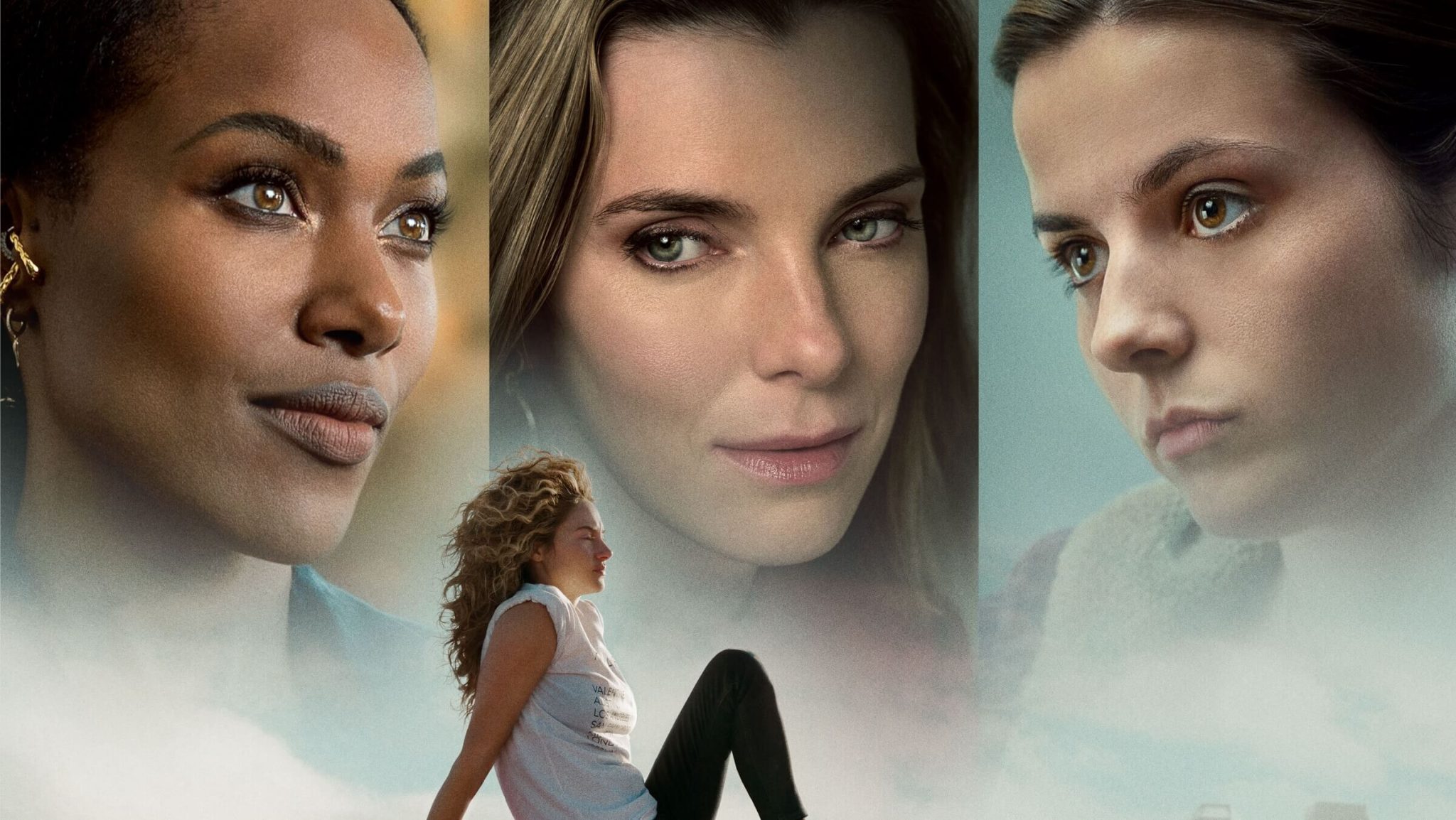How ‘Squid Game’ Twists Your Expectations—and Keeps You Hooked
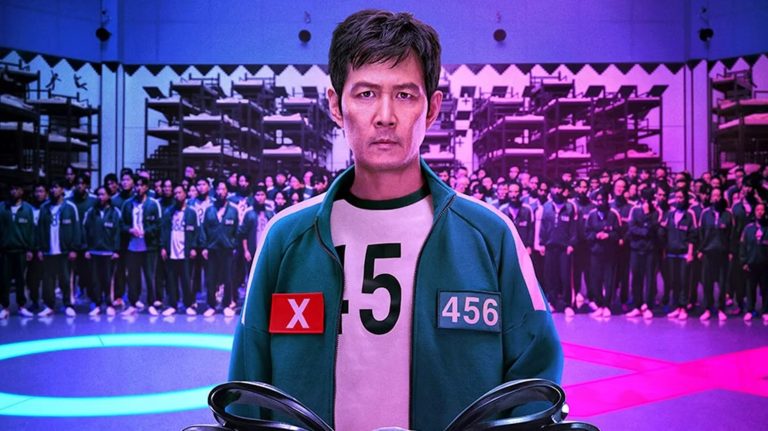
Squid Game Season 2 doesn’t waste any time getting to the fun and games of its storytelling. Hwang Dong-hyuk’s Netflix series continues its commentary on capitalism while upping the stakes for Seong Gi-hun (Lee Jung-jae) as he goes on his roaring rampage of revenge.
Gi-hun return to the games after barely surviving and winning last season with the help of police officer Hwang Jun-ho (Wi Ha-joon). This time, Gi-hun is playing a game of his own, attempting to lead a revolution that could bring an end to these violent games or see him become the new Front Man.
But how did Hwang keep Season 1’s momentum going throughout the second season? Let’s get into it!
Expanding the World of Squid Game
Squid Game is instantly recognizable for its sickly sweet color scheme inside the games that juxtaposes the violence really taking place and the cruelty of the real world just outside the walls.
Three locations play into the narrative of this season: the real world, the game rooms, and the Pink Guards’ quarters.
The Real World
Two years after winning the games, Gi-hun is hiding out in a motel that he has purchased, turning it into a compound for his ongoing operations. The outside world in Squid Game is starkly different from the vivid colors of the games. It’s grounded, but the darkness or the artificial lights looming overhead make the reality feel oppressive and inescapable.
Even in the real world, Gi-hun can’t escape the trauma of the games. The game's color schemes still haunt Gi-hun, from the pink doors to the sofa where the recruiter sits.
But the games are not the only thing represented in the motel. Production designer Chae Kyoung-sun told IndieWire that palm trees are etched into the bathroom window to showcase his longing for his family based in Los Angeles and the life he walked away from. In another room, bullet marks and hand-drawn targets highlight his determination while the dead plants, dust, and outdated calendars show his obsession.
Even when Gi-hun is back in the games, Jun-ho attempts to rediscover the island, reminding the audience what waits for the survivors of the games. The cold rain and limited space create a sense of isolation and tension as the crew gets closer to finding the truth they are after.
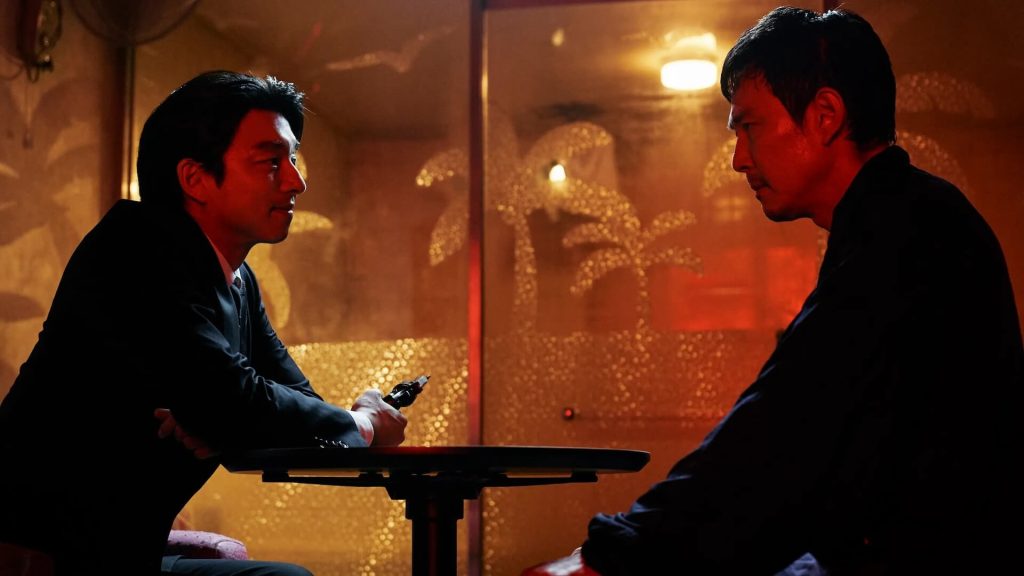
'Squid Game' (2021–)
The Squid Game
When Gi-hun returns to the Squid Game, the stakes feel higher and the world reflects this. The colors are more vibrant, but there are subtle differences in the design of the rooms to waive Gi-hun’s confidence.
The creators slightly alter the Red Light, Green Light room, add a new game to the sleeping quarters, and introduce new games. Gi-hun is not an expert at the games but has a slight advantage over the other contests by having expectations.
Gi-hun isn’t the only one who is being messed with in these spaces. All of the players have expectations embedded with nostalgia, making the games feel safe. It is only when red blood starts to stain these places that the players start to feel uneasy about their surroundings.

'Squid Game' (2021–)
The Pink Guards’ Quarters
Expanding the world in the series isn’t really about showing us more of the real world, but looking at the system operating the games.
Whether we are in an orange room that makes everything feel oppressive and negative or the purple Control Room that represents the ultimate power the Front Man (Lee Byung-hun) has over the games, the color theory behind the quarters plays into the emotional beats of the story.
Read More: Do Your Locations Have Character?
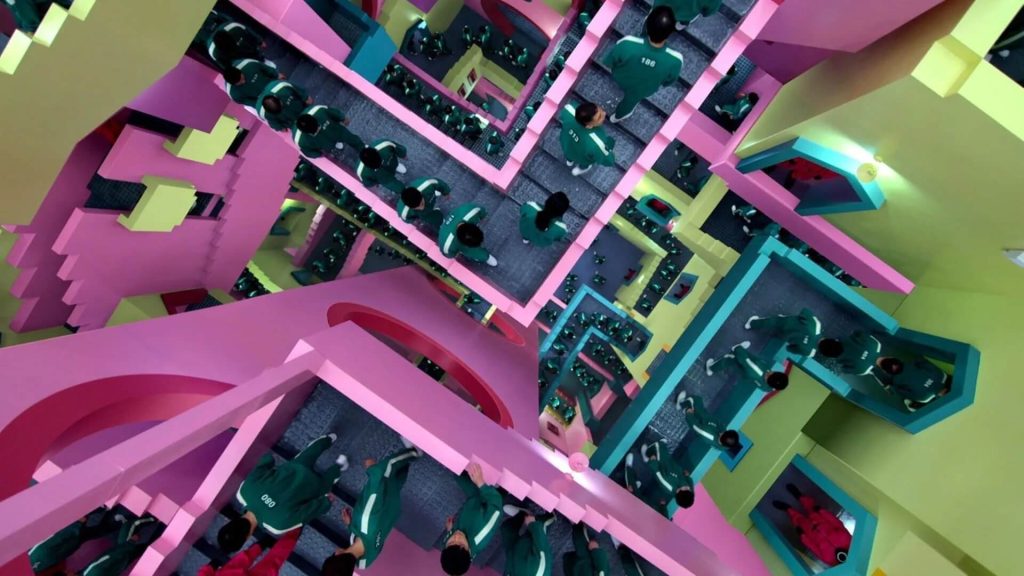
'Squid Game' (2021–)
The New Player 001
When Player 001 was revealed to be the creator behind the Squid Game in Season 1, everyone felt the shock and betrayal Gi-hun felt for his friend he thought died during the games. Playing on that shock, Hwang knew that whoever dawned the Player 001 sweatsuit would become Gi-hun’s foil once again.
It’s only fitting that Player 001 this season is the Front Man, also known as Hwang In-ho, Jun-ho’s lost brother and the overseer of the games.
Sure, this decision seems like the obvious choice, but Hwang seemed to understand this when he wrote the season. The audience now knows that In-ho is participating in the game, watching an unassuming Gi-hun try to break the game and save everyone’s lives. This builds tension and suspense as In-ho continues to put the team in jeopardy during the six-legged pentathlon or hesitates during the voting process.
Creating a foil, or a character that opposes your protagonist, is all about crafting a strong motive for them. Hwang revealed in an interview with IndieWire that In-ho’s motive is jealousy toward Gi-hu.
“To see Gi-hun, who still believes in the goodness of people, who is still in the light—while at the same time, [In-ho] wants to win in the battle against him because Gi-hun still holds dear to his heart something that [Front Man] has already lost completely, I feel like he would feel a sense of jealousy toward him,” the writer/director said.
While we are rooting for Gi-hun to succeed in his revolution, In-ho is a three-dimensional foil that is teetering between good and evil. Will reuniting with his brother and Gi-hun’s influence help transform In-ho, or will he continue to protect the games that continue to trap him?
Why is this unclear? Similar to Season 1, Squid Game Season 2 ends on a major cliffhanger that makes you yell, “That’s it!?”
Read More: 3 Ways To Create a Stellar Antagonist, Villain, or Nemesis
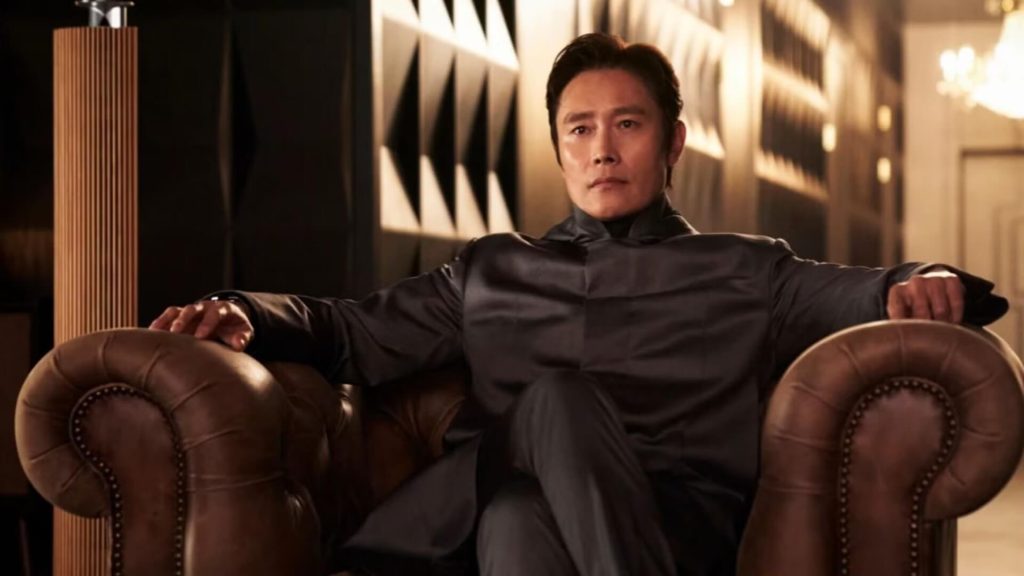
'Squid Game' (2021–)
How Squid Games Lands the Ending
Cliffhangers can often feel cliché, yet Squid Game manages to create ones that work. This storytelling device, commonly seen at the end of each episode in most streaming series, creates a sense of urgency and anticipation for the audience.
Squid Game uses cliffhangers not only to keep the audience hooked but also to subvert expectations. The necessity of watching the next episode to see how the game introduced earlier unfolds or to see how Gi-hun’s plan will either succeed or fail feels inevitable. Perhaps that’s why the series was able to rack up an astonishing 68 million views within its first four days of release.
Originally written to act as a midpoint in the extended narrative planned for Seasons 2 and 3, the confrontation between the Front Man and Gi-hun and the discovery of a mole in Jun-ho’s rescue team puts our heroes in a precarious situation. Gi-hun is captured and taken off-screen, and then... credits roll. Viewers are left satisfied with this conclusion yet deeply frustrated by the unresolved tension.
This isn’t a bad thing, especially if you are planning to write a trilogy or three-season series.
Some of the most memorable seasons of TV use this type of ending. Think of the Night King and his army blasting through the Wall in Game of Thrones Season 7 or the kids in Stranger Things reuniting to confront the Upside Down’s nightmare. These cliffhangers promise a larger adventure in the chapters to come.
But Squid Game goes a step further by teasing the audience with a glimpse of the future. The appearance of two new Red Light Green Light dolls hints that the games continue even in Gi-hun's absence. What is the new game? What role will Gi-hun play in it? Will Jun-ho ever step foot back on the island? These questions race through the audience’s minds as we wait for Hwang and his team to deliver a satisfying resolution in the series' final season.
Read More: 100 Prompts for Memorable Movie Endings
---
Beyond the continuation of Gi-hun’s story, writer/director Hwang has made a second season that keeps the momentum behind the first season moving by building out the world, playing with the audience’s expectations, and ending the season on another cliffhanger that keeps us wanting more.
Read More: 3 Writing Lessons From TV’s Wildest True Crime Adaptation
Check out our Preparation Notes so you start your story off on the right track!

Tags
Get Our Screenwriting Newsletter!
Get weekly writing inspiration delivered to your inbox - including industry news, popular articles, and more!

























